A nightly summer spectacle, lightning bugs, also known as fireflies, twinkle through our gardens and fields, captivating our attention and delighting our feline friends. But are lightning bugs poisonous to cats?
This is a question that pet owners might ask themselves as summer nights approach. We understand that nothing means more to you than the well-being of your furry companions.
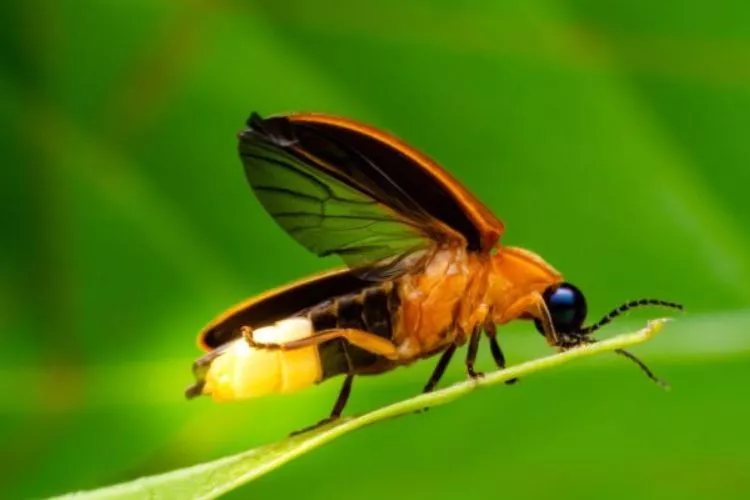
Through this article, we aim to delve into the subject matter, providing well-researched, reliable, and comprehensive information about whether lightning bugs pose any danger to cats.
🐾 Are lightning bugs poisonous to cats?
Yes, lightning bugs (fireflies) can be harmful to cats if ingested. The bioluminescent chemical that gives these insects their characteristic glow, called lucibufagins, can be toxic to cats and other pets.
While not typically lethal, ingestion can cause various signs of illness such as vomiting, drooling, loss of appetite, and lethargy. In some rare instances, severe reactions may include tremors and heart rate abnormalities.
Any observed ingestion of lightning bugs by your cat should be addressed promptly. Contact your veterinarian if your cat displays any unusual behaviors or symptoms.
As a general rule, it’s best to prevent your cats from catching and eating any bugs, to maintain their overall health and safety.
🐾 What to do if your cat eats a lightning bug?
If you suspect or observe your cat has eaten a lightning bug, here are the steps you should follow:
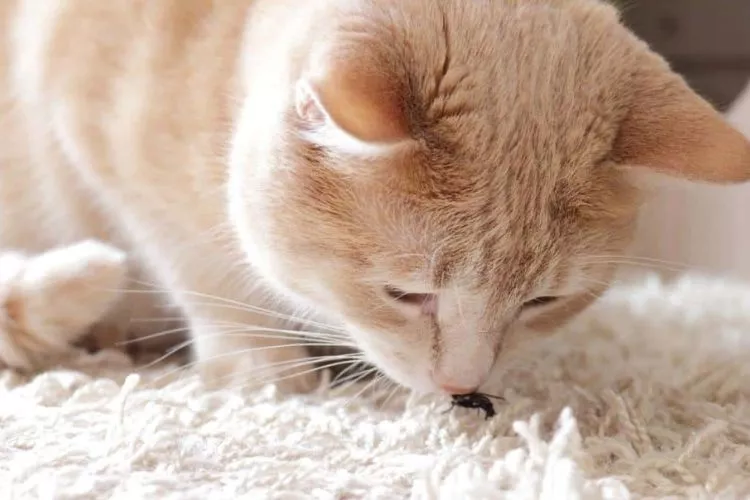
- Monitor Your Cat: Keep a close watch on your cat and observe for any signs of distress or unusual behavior. Symptoms may include salivation, vomiting, reluctance to eat, and lethargy. In rare cases, more serious symptoms such as tremors and abnormal heartbeat might manifest.
- Contact Your Veterinarian: Even if your cat shows no immediate symptoms, it’s wise to inform your veterinarian about the incident. They can provide specific guidance and may advise you to bring your cat in for an examination.
- Immediate Care: If advised by the veterinarian or if the cat shows severe symptoms, take your cat to the veterinarian immediately. Take note of when your cat consumed the lightning bug and any symptoms it exhibited, to aid the vet in assessing its condition.
- Prevent Future Incidents: Lightning bugs are not the only insects that can be harmful to your pet. To avoid similar incidents in future, discourage your cat from hunting or playing with insects, particularly those it may come across outdoors.
Remember, maintaining your pet’s health requires vigilance. Always contact your vet if you have any health concerns regarding your pet. The safety of your cat should always be of utmost priority.
🐾 Lucibufagins: The Toxic Compound
Lucibufagins, a term derived from the firefly genus “Luciferin,” refers to the class of toxic compounds found in fireflies or lightning bugs. These compounds play a central role in the bioluminescence that makes these insects glow and also function as an effective defense mechanism against predators in the wild.
When it comes to cats, ingesting lucibufagins can lead to varying degrees of discomfort and illness. While not typically lethal, this chemical compound can have a significant influence on a cat’s well-being by inducing symptoms such as excessive salivation, loss of appetite, vomiting, and lethargy.
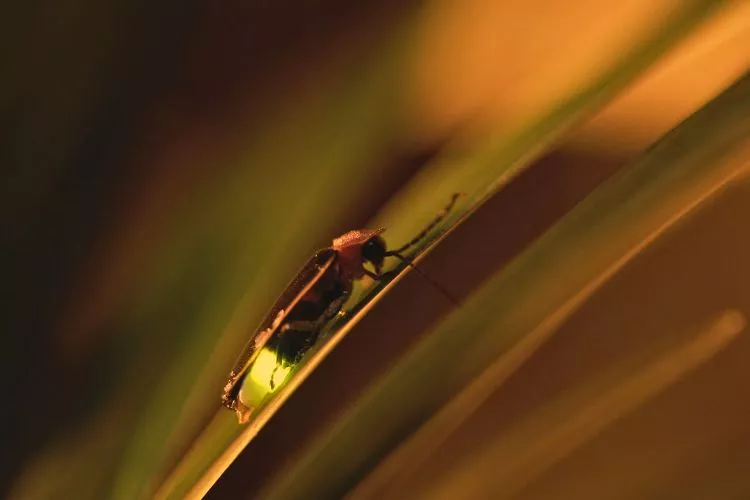
In some rare cases, this toxicity can also lead to more serious signs like tremors or heart rate abnormalities.The severity of the reaction usually depends upon the amount of lucibufagins ingested, the size, age and health condition of the cat, and the efficiency of its metabolic processes.
Yet, unlike some other animals, cats lack certain essential liver enzymes which makes them more susceptible to the harmful effects of this toxin and other similar chemicals.
Understanding the potential harm these toxins can cause to your feline companion is crucial for prevention and quick response.
By keeping an eye on your cat’s behavior during bug season, particularly during night-time excursions, you can safeguard against potential ingestion of lightning bugs and safeguard your cat’s health.
🐾 Other Bugs Harmful to Cats
While we’ve been primarily discussing fireflies, it’s essential to understand that several other common outdoor insects can also pose a danger to our feline friends. If ingested, some of these bugs can lead to everything from minor discomfort to severe health issues.
Bees and Wasps
While not necessarily toxic if swallowed, stings from bees, wasps, and similar insects may be a danger to cats.
They can cause painful swelling, and in rare cases, an allergic reaction may lead to anaphylaxis, a life-threatening emergency that requires immediate veterinary attention.
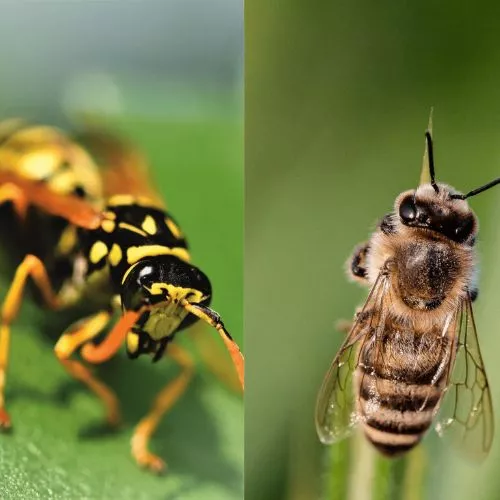
Certain Types of Caterpillars
Some caterpillars, such as the Saddleback and the puss caterpillar, can be harmful to cats.
They possess poisonous hairs or spines that cause intense irritation and discomfort. If swallowed, they may cause significant gastrointestinal distress or oral swelling.
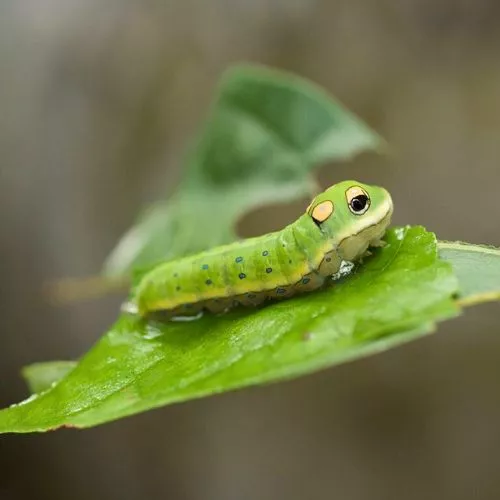
Spiders
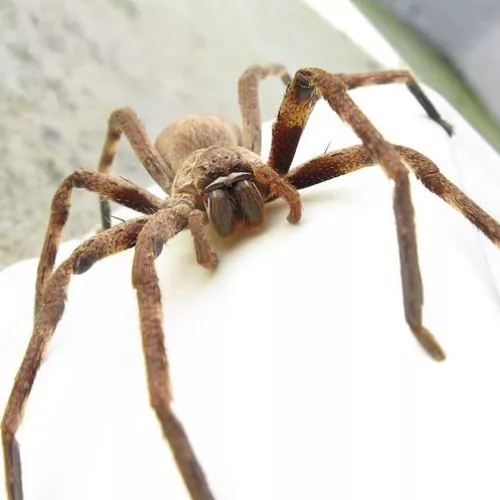
Although most common spiders are harmless to cats, a few, such as the Brown Recluse and the Black Widow, pose severe risks.
Their venom can lead to muscle pain, paralysis, abdominal discomfort, and in very rare cases, death.
Centipedes
Much like bees and wasps, centipedes can sting cats.
While the sting is uncomfortable and can cause localized pain or swelling, it usually isn’t dangerous unless the cat is allergic.
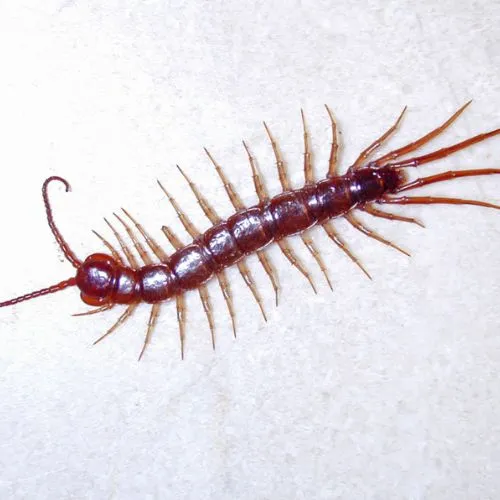
Cockroaches
Cockroaches aren’t necessarily toxic or harmful if ingested.
However, they can often harbour diseases or chemical residue, both of which can cause problems if ingested by cats.
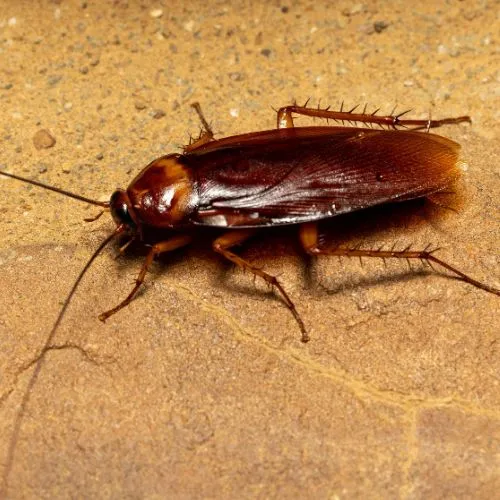
Understanding the potential dangers posed by these insects is the first step in keeping your pets safe. Always monitor your cat’s behavior outdoors and act immediately if you suspect they’ve been stung, bitten, or ingested a harmful insect.
🐾 Prevention and Safety Measures: Protecting Your Cats
Keeping cats safe from potentially harmful insects such as lightning bugs requires awareness and proactive measures. By undertaking a combination of supervision, environmental adjustments, and training, you can significantly reduce the risk to your cat.
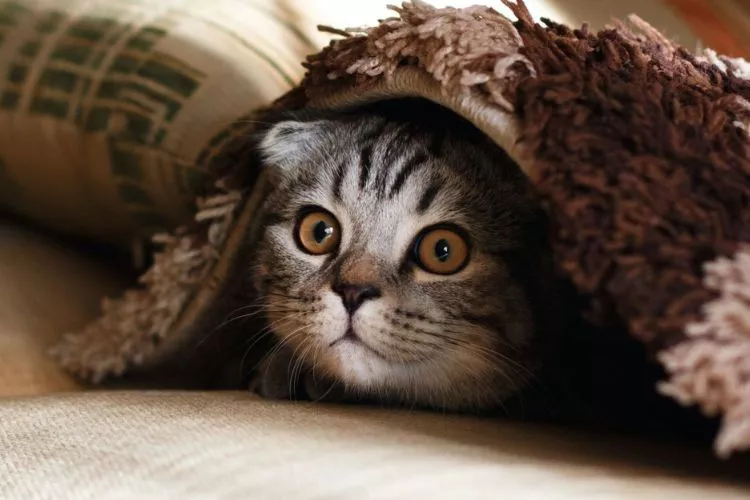
Close Supervision
One of the most effective practices is to keep a close eye on your cats, especially during the peak lightning bug season or whenever they’re outside. Promptly discourage any attempts by your cat to chase or ingest bugs.
Limit Outdoor Access
Creating a safe indoor environment can be the simplest way to avoid contact with harmful insects. If your cats are primarily indoor pets, consider limiting their outdoor access, especially during evening hours when lightning bugs are most active.
Safe Outdoor Spaces
If your pets do spend time outside, make sure your outdoor spaces are safe. Perform regular checks for harmful insects and, if possible, consider creating a screened outdoor area to prevent your cat from coming into contact with harmful bugs.
Training Your Cat
It’s also advisable to train your cat to avoid chasing or eating bugs. With patience and reinforcement, many cats can learn to refrain from this behavior.
Regular Veterinary Check-Ups
Regular veterinary check-ups are vital for maintaining your cat’s overall health. During these visits, discuss with your vet any potential risks in your local environment and seek advice on preventive measures.
Immediate Intervention
Despite your best efforts, if your cat manages to ingest a lightning bug or any other harmful insect, immediate intervention is critical. Contact your vet immediately if you notice any unusual behavior or symptoms. This can ensure prompt treatment, minimizing the potential harm to your beloved pet.
You may also find useful: Are Millipedes Poisonous to Cats?
Conclusion:
Lightning bugs and certain other insects can indeed cause distress and ill-health in cats due to the toxic compound lucibufagins, fatalities are exceedingly rare.
As cat owners, it’s crucial to monitor your cats closely, especially during insect-active seasons, to prevent any potential ingestion.
With a proactive strategy that includes regular vet check-ups and creating safe environments, you can protect your feline friend from the potential harm caused by these insects.
Always remember, prompt veterinary intervention is a lifesaver when dealing with unexpected circumstances.
